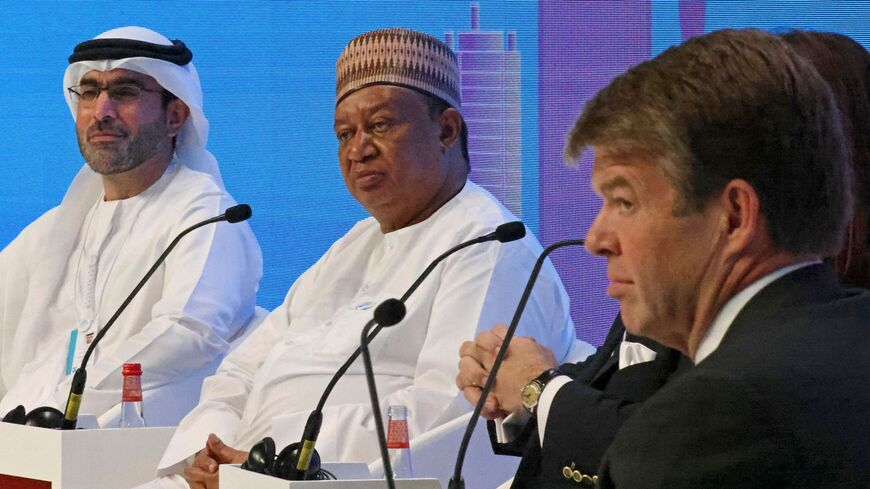
The Biden administration has been unable to get Gulf states to increase oil production to bring down prices and some European states are seeking alternatives to Russian natural gas.
The United Arab Emirates’ energy head has endorsed an agreement between the Organization of the Petroleum Exporting Countries (OPEC) and Russia. Energy Minister Suhail al-Mazrouei said that the war in Ukraine should not affect the oil giants’ plans.
“We always believe that whatever we do as countries, when it comes to production and this work, it needs always to stay out of politics,” said Mazrouei at the Atlantic Council’s energy forum in Dubai.
Why it matters: The so-called OPEC+ alliance decided earlier this month to stick to its planned 400,000-barrel-a-day increase for April. Oil prices have been rising all year, and shot up to their highest levels since 2008 following the Russian invasion of Ukraine in late February.
US President Joe Biden has been pressuring Saudi Arabia and Venezuela, both OPEC members, to increase oil production as a means to bring down prices. OPEC member states have thus far declined to do so, however.
Mazrouei said no one can replace the volume of oil Russia produces, should some entities ban Russian oil imports.
“Russia is an important member and leaving the politics aside, that volume … is needed today. And unless someone is willing to come and bring 10 million barrels,” no one could make up for Russia, he said.
Mazrouei is not alone in his thinking. OPEC Secretary General Mohammed Barkindo also said earlier this month no one else can replicate Russia’s production.
The UAE and Saudi Arabia may be reluctant to help the United States with oil prices due to concerns about the Iran nuclear deal and the US military’s defeat in Afghanistan, an analyst recently told Al-Monitor.
The price of Brent crude oil actually fell today. The global oil price benchmark started the day trading at around $114 a barrel. By around 11:00 a.m. ET, the price had fallen to around $108 a barrel.
The fall is likely unrelated to the Emirati minister’s comments. Oilprice.com analyst Irina Slav wrote that the drop is a response to China reimposing restrictions due to an increase in COVID-19 cases.
What’s next: The United States and European Union have so far refrained from sanctioning Russia’s energy industry. Some countries are beginning to make alternative arrangements for Russian natural gas, however. Last week, a German official said the country will start receiving gas from Qatar.
